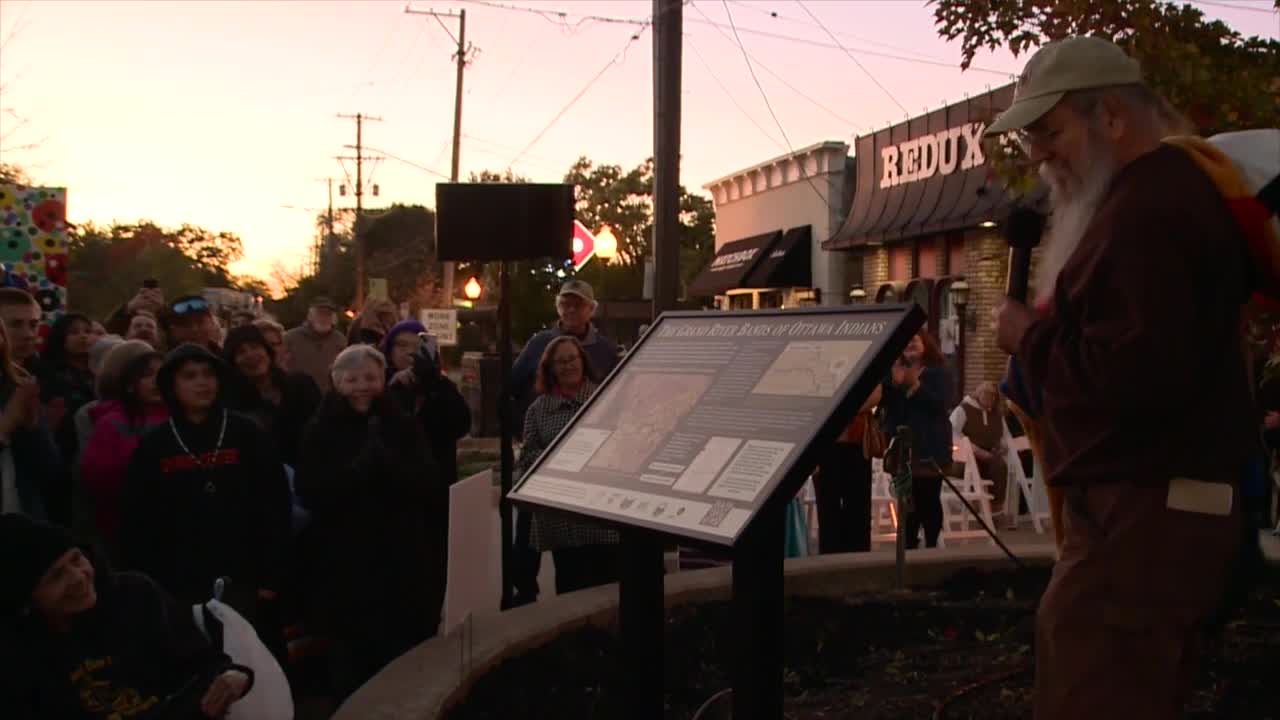GRAND RAPIDS, Mich. — A new commemorative sign at the intersection of Lake Drive and Robinson Road in Grand Rapids' Eastown neighborhood now marks thousands of years of Indigenous history, including historical trade routes and villages that once lined the Grand River.
The sign was unveiled by the Eastown Community Association, along with the Grand River Bands of Ottawa Indians, to honor their tribe's long presence in the area. For Chairman Ron Yob, the commemoration represents more than historical acknowledgment, it's his family's story.
"My great, great great great grandfather actually walked this trail to sign a treaty," Yob said.
The permanent sign features documentation proving the tribe's presence in the area, including records dating back centuries.

"There's something from 1712 from the Jesuit missionary that talks about the people of the Grand River here," Yob said.

The project was spearheaded by the Eastown Community Association and Executive Director Steve Staggs, who worked with the Grand Rapids History Center to uncover crucial evidence supporting the historical claims.
"It's so exciting when you find what I call the smoking gun. You'll see it on there," Staggs said. "It's the survey from 1831 that has the footpath on it."

For Yob, the sign serves as an important reminder that Indigenous communities remain active in the area.
"I don't want people to 50 years from now to say whatever happened to those Grand River Indians, you know," Yob said. "It's got to please [our ancestors] that our community is still alive and well here, you know, we didn't all go and we didn't all leave, and there'll be generations of us still here."
The sign represents both a look back at the land's history and a way to honor Indigenous communities that have called the area home for millennia and continue to do so today.
The project received funding from Experience GR's Discover Tourism Grant Program. In addition to the commemorative sign, officials have also been approved to place a Michigan Historical marker at the location.
This story was reported on-air by a journalist and has been converted to this platform with the assistance of AI. Our editorial team verifies all reporting on all platforms for fairness and accuracy.
Follow FOX 17: Facebook - Twitter - Instagram - YouTube





